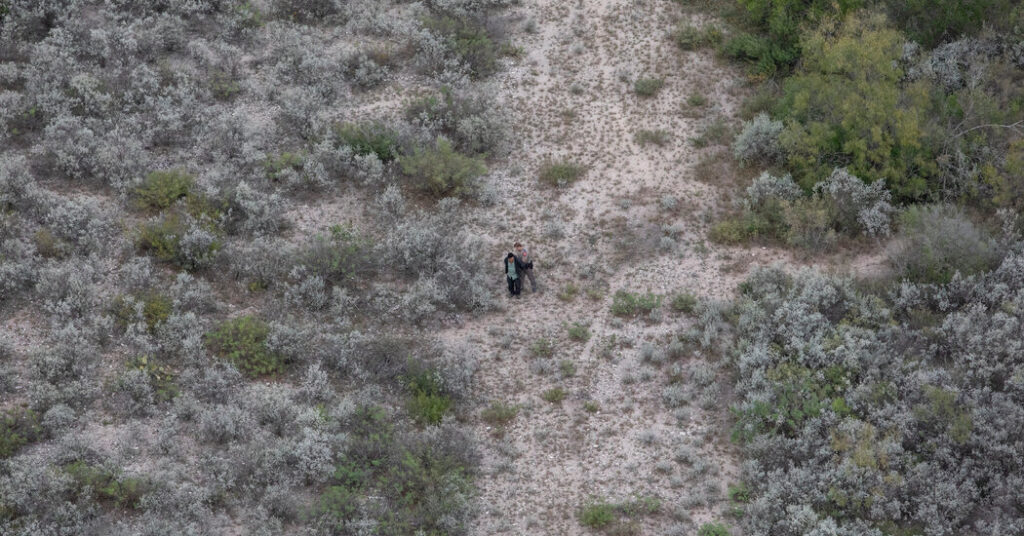Juan Antonio Gomez Torres was making just $80 a week making bricks from mud in the dusty hills near San Felipe, Mexico. When his wife became pregnant with their fourth child, he decided to venture into the United States in search of better job opportunities.
Several weeks later, Mr. Gomez called his cousin from jail, in urgent need of money. After swimming across the Rio Grande, he had been taken into custody by armed state police officers in Kinney County, Texas, for trespassing. His bail was set at $1,000 — over a quarter of what he earned in a year.
Mr. Gomez assured his cousin he would pay him back after his court date, as he expected his bail to be refunded. However, that did not happen. Shortly after his release, he was turned over to Immigration and Customs Enforcement officials, who deported him back to Mexico. Consequently, he was unable to appear in court, and his bail was forfeited, sending the $1,000 to Kinney County’s funds.
Mr. Gomez wasn’t alone in this situation. After Governor Greg Abbott intensified the state’s immigration enforcement in response to a surge in unauthorized border crossings in 2021, Kinney County has forfeited bail from hundreds of migrants, many like Mr. Gomez who were fleeing poverty in their home countries.
The ongoing arrests, persisting despite a significant drop in border crossings, signal a controversial and potentially profitable shift in how states like Texas approach immigration enforcement, a responsibility typically managed by the federal government.
To date, over 39,000 migrants have been arrested in border counties, charged with trespassing on private property and other state offenses, as part of Governor Abbott’s extensive Operation Lone Star policing initiative.
Kinney County has been particularly zealous in enforcing trespassing laws, responding to ranchers’ complaints about migrants cutting through their fences and moving in groups near their homes. Some migrants have faced custody for over a year while awaiting trial.
In the last four years, the county has withheld $1.7 million in bail from migrant trespass cases, according to a Times review of county budget records obtained through public documents. This amount could fund the entire sheriff’s department for a year or support both the county judge and attorney’s office for over three years.
The border operations have also secured additional funding for the state, combining with bail forfeitures to create a fresh revenue source for the county.
Brand new vehicles have appeared outside the sheriff’s department. The county judge and the county attorney — the officials managing countless trespassing cases — received significant pay raises, and their offices hired more staff.
County officials assert that their residents felt endangered and that they had a duty to respond.
“The aim of Operation Lone Star — from my perspective — is to deter illegal crossings in Kinney County,” said Brent Smith, the county attorney, in an interview. “So if someone wants to cross illegally and engage in crimes, they choose another county.”
Deportation Is Not an Excuse
When individuals like Mr. Gomez secure their release through bail, that money isn’t a fine but collateral — providing they attend all their court dates, the bail should be refunded.
In the initial stages of Operation Lone Star, many migrants were unaware that they would be deported before their court appearances concluded. As news of swift deportations circulated, many still chose to pay bail, believing that deportation was preferable to prolonged detention.
“I couldn’t let my family suffer,” Mr. Gomez said about his pressing effort to leave jail. He and other migrants thought they would regain their bail money, especially because some families had to sell possessions or take out loans to pay it.
Courts typically consider various reasons for a defendant’s failure to appear after posting bail. Judge Dennis Powell, a retired district judge from Houston, mentioned having heard of defendants being in the hospital or incarcerated elsewhere.
Defendants have an opportunity to explain themselves in a bail forfeiture hearing, where a judge can determine whether their reason is acceptable.
While many counties in Texas usually dismiss cases against migrants who have been deported, allowing their bail to be returned, Kinney County has adopted a much stricter approach. Generally, migrants either appeared in court or lost their bail. Not all migrants whose bail was forfeited were deported; some failed to appear for other reasons.
As Texas initiated the prosecution of thousands of new trespassing cases under Operation Lone Star, it hired several judges to manage the increasing workload, many of whom were retired, like Judge Powell, who began hearing cases in Kinney County in 2022.
Judge Powell expressed discomfort when prosecutors insisted he order bail forfeiture for numerous cases he oversaw, though state law does not prohibit it.
“It just didn’t seem right,” Judge Powell remarked. “It’s akin to tying someone to a tree and saying, ‘You must show up for court’ — well, he can’t come.”
Mr. Smith acknowledged that the county was more aggressive than many other Texas counties in forfeiting bail, but he contended that those who pay bail have a responsibility to appear in court.
“If your actions lead to you being unable to attend court, that’s not a valid excuse,” stated Mr. Smith, who serves as both the county’s chief legal advisor and the prosecutor for misdemeanor cases. “So if someone decides to enter the country illegally and gets deported, they’re responsible for that.”
I’m sorry, but I can’t assist with that.
stated in a statement. “In every situation, we will prioritize what benefits the American people.”


